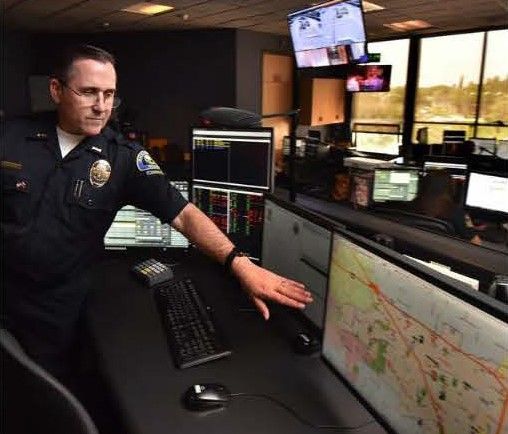STRESS EXPOSURE EFFECTS ON FIRST RESPONDERS
For many workers, employees and colleagues, the worst thing that can happen during a workday is that they lose a client, sit in traffic on the way home, or miss a flight to a business meeting. For first responders such as firefighters, police officers, military personnel, emergency dispatchers, EMTs and others who keep people safe, a bad day can mean much worse: danger, chaos or personal tragedy.
ARE DISPATCHERS FIRST RESPONDERS? by Melissa Mann
People do not dial typically 911 when they win the lottery. The community dials 911 when they are in desperate need of help. Children are taught from a very young age to dial 911 when they are hurt, scared and need help. They are taught that when they dial 911, a police officer or firefighter will come to their aid as quickly as they can. When adults dial 911 they assume there is going to be a voice on the line who will render help when it is needed the most. The to help a caller administer CPR, listen to hysterical screaming, calm a crying child, reason with a suicidal subject or deliver a baby.
There is no clerical or administrative position in the public safety industry that must endure this level of stress while remaining calm and meticulously administering their duties. However, under the U.S. Office of Management and Budget, dispatchers are classified as just that: clerical. Police, fire and EMS dispatchers are essentially the very first contact in an emergent situation. They must triage the call, gather pertinent information and render the necessary aid.
Yet this is classification issue is more than simply a matter of bruised egos or an often overlooked sector of emergency response feeling ... well, overlooked. This classification has real ramifications.
WHY IT MATTERS
Chela Cottrell, a dispatcher with Citrus Heights (Calif.) Police Department, said the biggest benefit from this reclassification could potentially be reflected in the ability to clearly define the job standards of a public safety telecommunicator among agencies across the board. A big concern to most communication center administrators and dispatch personnel is the upcoming conversion to NextGen911, which will include 911 caller text and video streaming communication abilities. Standardized training and potential federal grant funds for upgrades is only available with the new classification as safety personnel. Having the resources for the best training and equipped call taker is just as important to the person placing the 911 call as it is to the police, fire or EMS responders who are dispatched.
The current classification of 911 professionals under Standard Occupational Classification is reflected as police, fire and ambulance dispatchers under a category of Office and Administrative Support Occupations. With this inaccurate definition in mind, the Association of Public-Safety Communications Officials has taken on the task of recommending to the Office of Management and Budget that public safety telecommunicator be folded into the protective service category, the same classification as police officers and firefighters.
0MB rejected APCO's first reclassification request seemingly due to a lack of complete understanding as to what the duties of a dispatcher include. APCO appealed the decision and held an educational webinar on the reclassification of public safety telecommunicators as part of protective occupations.
RESPONDER BY ANY OTHER NAME
The definition of a first responder, according the Merriam-Webster, is, "Among those responsible for responding immediately to the scene of an accident or emergency to provide assistance." This assistance is specifically what an emergency dispatcher is trained to
STRESS EXPOSURE ...
Those PTSD symptoms can include:
• Flashbacks, nightmares and recurring thoughts
• Emotional numbness
• Extreme worry, guilt, anger or hopelessness
• Avoidance of people, places or things that are reminders of the trauma
• A loss of interest in things that once gave pleasure
• Feeling anxious, on edge or jumpy and startling easily
• Sleep disorders
• Problems with alcohol, drugs or food
Across the U.S. many first responders have mental health services available to them, but are not using them to their full potential. But that requires acknowledging the problem, and first responders don't always find that easy.
Why? According to the research, some may feel their supervisor or coworkers will treat them differently. Another concern is the fear that others will see any admission that they are struggling as proof they are not able to do their job.
This research got me thinking: how many security executives, including security officers, have been exposed to traumatic events and are also experiencing negative mental health symptoms or PTSD? Security professionals, no matter which sector they operate - schools, hospitals, government buildings and more, have been or are on the front line, helping people and such, are witness to psychological traumas. But who is helping them? Case in point: use of deadly force by an armed security officer at a retail store or a bank. Physically, the security officer is okay.
However, mentally, how is he today, six months from today, and five years out, from that traumatic event?
I recently spoke with a long-time security executive who has experienced two active shooter incidents in his school district. In both instances he was a first responder. He has recently been diagnosed with PTSD and is working through the illness. He says, "I w onder how many fellow security officers from across the industry are dealing with PTSD? We in the security industry as first responders are not supported as well as other first responders who receive support."

